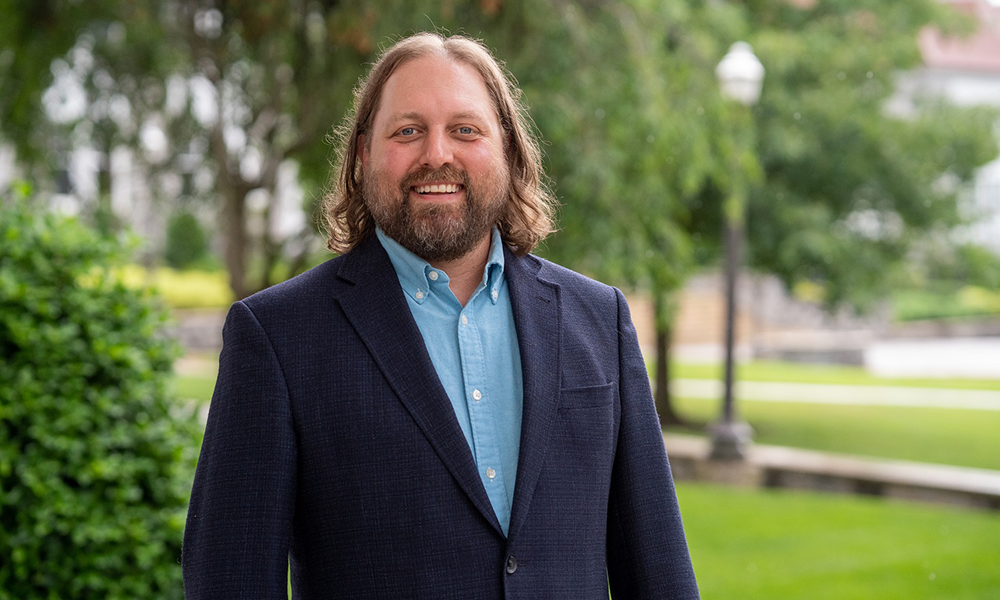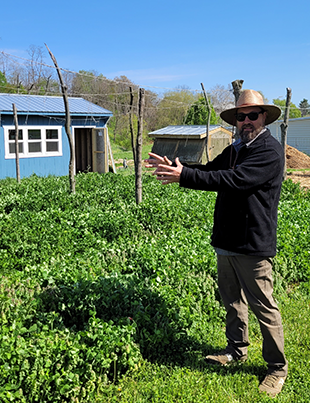Faculty Focus: Mapping Environmental Justice
News
SUMMARY: Case Watkins, associate professor of justice studies, is the 2022 Provost Award Winner for Excellence in Research and Scholarship for the College of Arts and Letters. An accomplished scholar who has done research in Brazil and New Orleans as well as here in the Shenandoah Valley, Watkins studies the intersections of power, environment and justice and, in his words, “how long-term ecological, economic, cultural, and political processes coalesce to transform landscapes and societies.”
Case Watkins, associate professor of justice studies, is the 2022 Provost Award Winner for Excellence in Research and Scholarship for the College of Arts and Letters. Watkins joined the department in Fall 2017. His teaching and scholarship contribute to numerous programs at JMU, including justice studies, geography, political science, Latin American, Latinx, and Caribbean Studies (LAXC), and African, African American, and Diaspora (AAAD) studies.
 An accomplished scholar who has done research in Brazil and New Orleans as well as here in the Shenandoah Valley, Watkins studies the intersections of power, environment and justice and, in his words, “how long-term ecological, economic, cultural, and political processes coalesce to transform landscapes and societies.”
An accomplished scholar who has done research in Brazil and New Orleans as well as here in the Shenandoah Valley, Watkins studies the intersections of power, environment and justice and, in his words, “how long-term ecological, economic, cultural, and political processes coalesce to transform landscapes and societies.”
“As a cultural and environmental geographer, my research agenda in Northeast Brazil and Virginia’s Shenandoah Valley analyzes the interactive political and ecological forces that shape our communities, economies, and environments.” Watkins makes his work accessible to activists and policymakers in Brazil by developing research and policy reports written in Portuguese and freely available to the public.
In Harrisonburg, Watkins involves students in local projects that focus on environmental justice by partnering with local organizations like NewBridges Immigrant Resources Center, Vine and Fig, Give Solar, and the City of Harrisonburg. Last year, he collaborated with the Jubilee Climate Farm to promote social and environmental justice efforts. Four students from his Fall 2021 Mapping Justice class continued working with the Farm in the spring semester. They developed an educational story map in ArcGIS to highlight the farm’s projects and share the organization’s history and work.
Student Aubrey Spagnoli (‘23) described the course's impact: “This experience of working in the community alongside Dr. Watkins allowed me to connect what we were learning in class to the world around me in a hands-on setting where I was also learning about the Harrisonburg community.” Another student, Nick Chaky (’22), noted: “I learned a lot about social action in the Harrisonburg community. This project has been very rewarding… and I can’t wait to come back to see how the Jubilee Climate Farm has grown.”
